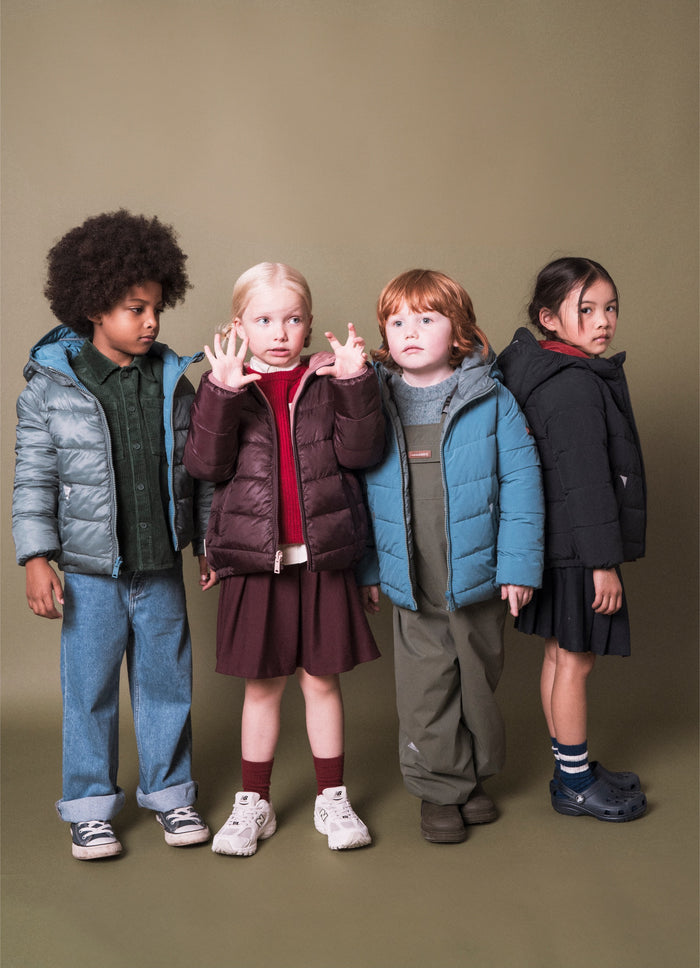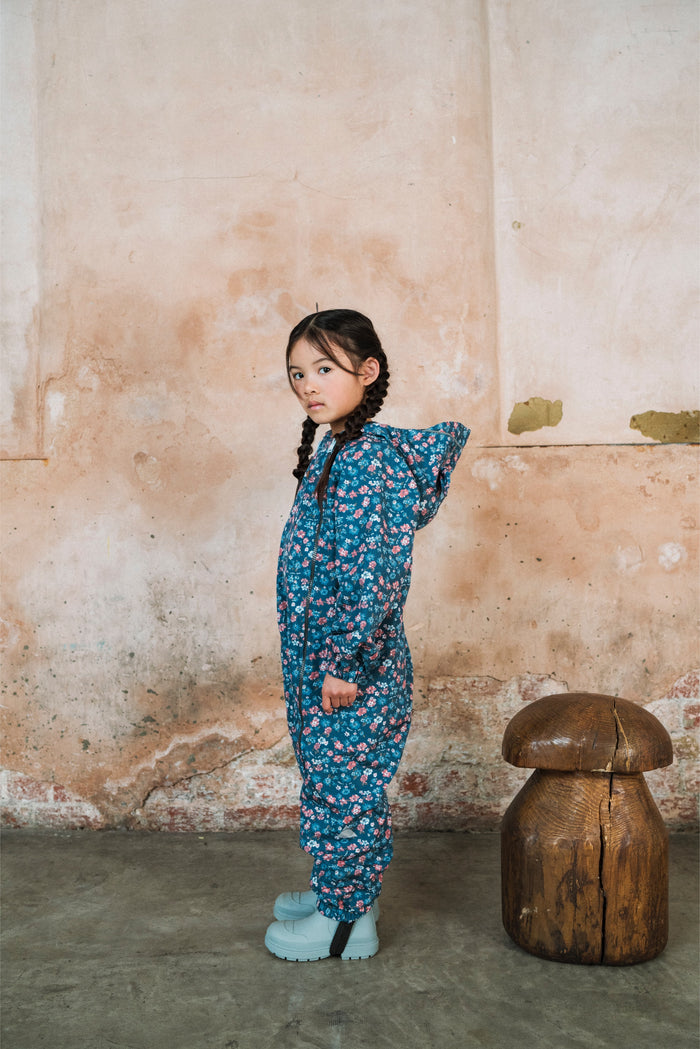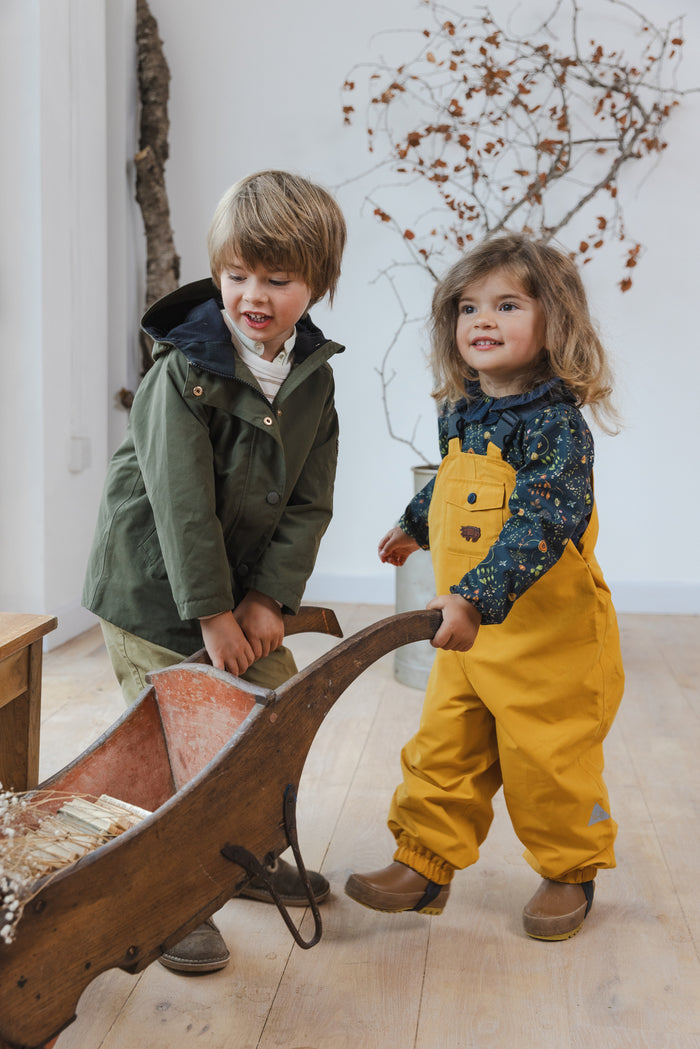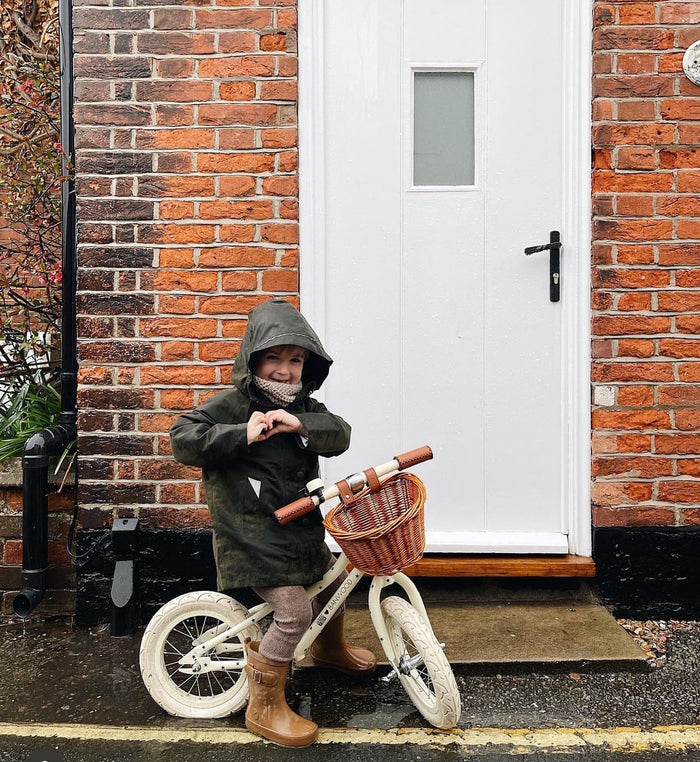This week we are absolutely honoured to share 'My Feral Child - How social restrictions set us free', a piece written for us by investigative journalist and published author of 'After Birth', Jessica Hatcher-Moore. Jessica is no stranger to taking herself out of her comfort zone; as a foreign correspondent she has shone a light on political corruption, humanitarian crises, and been a voice for the plight of endangered animals in the most under-represented areas of the globe.
Moving to the hills of Wales where she raises her children wild and free with photojournalist husband Philip, Jessica shares an incredible insight into her life and how she has broken down the usual boundaries imposed by society to bring her children up at one with nature.
In her own persional life, Jessica experienced the trauma of childbirth and the impact that having children has on body and mind first hand, spurring on years of research to write 'After Birth - What nobody tells you, how to recover body and mind'.
This research started a whole new journey of discovery, resulting in a straight-talking new mums guide to restoring physical and mental health after having a baby and has been heralded as "prescribed reading for all new parents" by acclaimed author Clover Stroud.
" Essential reading for all parents to be " ~ Marina Fogle
'After Birth' by Jess Hatcher-Moore
is available from all leading
bookshops.

All imagery throughout kindly shared by
Philip Hatcher-Moore~ My feral child: How social restrictions set us free ~
The lockdown of spring 2020 is a period I will always be grateful for. It was difficult at times – I was pregnant, and on a deadline to write my first book After Birth, a no-nonsense guide to postnatal recovery – but it was also a time of great freedom. Until then, my life as a mother had been a succession of places we had to be and things we had to do. Then time stopped. Finn’s shoes gathered dust at the back of the shoe rack – wellies only – and his pink and chubby toddler's body became lean and golden. My husband would clothe him optimistically each morning but Finn would shed the layers the moment the sun appeared over the hill. He insisted on doing everything naked – weeding, bicycling, even pulling up nettles (with gloves, I should add). If ever a child had a natural state, this was it. Recently potty-trained, he would joyfully take aim at dandelions and daisies. Only when he started leaving solid offerings on the garden path did we realise it had gone too far.
We live halfway up Llantysilio mountain, near Llangollen in North Wales, in a cottage that perches on the side of the hill. Below us, the fast-flowing river Dee whisks snowmelt from the mountains of Snowdonia out to the Irish sea. Sheep graze the fields below and, every now and then, half a lamb makes its way into our freezer and onto our plates.
It is an idyllic place for a child. When it snows, we drag the boys on sledges around the mountain. When it’s hot, we wallow in the river and picnic under oak trees. Our garden is small and steep but what we lack in lawn we make up for in wilderness and hillside; behind a badly listing dry stone wall, a picket gate leads out onto the open-access land of the mountain, which we treat as an extension of our garden and the children's playground.

An appetite for risk
We now let Finn, our eldest, who is nearly five, play on the mountain on his own – because we can’t think of a good enough reason not to. He may trip and fall or get stung, but we calculate that to be the worst of it. Sometimes I watch him in secret from behind a giant buddleia. I like to watch my children when they don’t know I’m there. Finn seems to move more slowly and deliberately on his own, enjoying his private sense of purpose without the urge to impress or call out, “watch me, mummy”. I also think he is more attuned to risks when I’m not there; the more unprotected he feels, the stronger his sense of self-preservation.
On the mountain, we have laid an old ladder on one of the steepest inclines, its feet resting on the one small flat patch of grass. The boys think it extremely daring to climb it on their own – scaling their very own Faraway Tree. The ground is so steep it feels like you’re climbing towards the sky. It gives them something exhilarating they can do without grown-ups spotting them from below, fussing over their safety.
The downside of the freedom we afford our children is the frequency with which we sign accident forms at nursery for the myriad scratches and bruises they acquire over the weekends. I feign embarrassment, but I’m not actually embarrassed – children won't develop resilience or a sense of what they’re capable of without the odd scrape or graze along the way.
Before Wales, we lived in Berlin for a short time. Childless, I would gape at the city’s children in public playgrounds wielding long branches and dangling from trees. Children’s playgrounds in Berlin are designed to be perilous. In 2020, a group of accident insurance companies called on German councils to develop playgrounds that were more, not less, dangerous, to make up for all the time children were spending locked indoors during the pandemic and help them develop ‘risk competence’, a necessary skill.
The opposite has happened in the UK, where in 2019 a major insurer withdrew its cover of several British playgrounds due to a rise in the number and cost of claims, prompting fears that playgrounds will only become less challenging – and more boring. Too often, we treat our children like lemmings, expecting them to fall – when even lemmings, contrary to popular belief, do not willingly commit suicide. They walk off cliffs, but then they hit the water and they swim.
I regularly chide myself for giving absent-minded and, frankly, unconstructive warnings, such as the classic, ‘Be careful’ or ‘Don’t fall off”. My children never intend to be careless or to hurt themselves, they do so by accident. Rather than issue pointless commands, if I’m going to say anything then I try to make it constructive – for example, ‘It’s rained so that rock could be slippery’. Our job is to point out unforeseen risks to avoid catastrophe; to keep them as safe as necessary rather than as safe as possible.

Nature’s playground
It is now early summer, the bracken on the mountain grows like triffids and the land at the top of the Faraway Tree has become inaccessible, thickly covered by the spiny ferns. I lie in a hammock in the late afternoon while the boys play with the chickens and the puppy, a ragtag band of unlikely friends.
Our ‘lockdown chickens’, purchased in the spring of 2020, range freely on the mountain as they gradually return to their native origins as junglefowl. Often, we set out on a walk and after half a kilometre or so find the intrepid hens on their own expedition. “Don’t worry, Mummy – the chickens will look after me,” Finn reassures me when I pop back to the house leaving him alone. The hens get carried around like soft toys and like to lay eggs under the bracken, which means we spend hours hunting for their stash and sometimes go without for weeks at a time. Often, it is the children who spot the eggs first for they are the closest observers of the natural world. It is Finn who asks why shadows grow longer and why the graceful Red Kite is ‘stuck’ when it hovers in the sky. And it is Hugo who silently observes the caterpillar making its undulating way across a nasturtium leaf.
It is perhaps revealing that Hugo's first word was ‘poo’ – closely followed by ‘bee’. He was born in the summer of 2020 and by the age of one and three-quarters could identify four different species of poo (thankfully not including his brother’s). ‘Bee, bee!’, he effuses with the greatest urgency whenever he spots an insect, before proceeding to greet the creature unreservedly. Whether pollinator or pest, they are his friends. Life on the hill has, consciously, become a little more sequestered and a little less sociable since we experienced social restrictions – I don’t schedule things with the same verve and am more content to let days drift by.

" Pack no toys, make no plans, just be "
Our mountain garden has taught me, above all, that when you stop making plans or lugging toys around with you, when you just find a quiet place and aim at nothing in particular, your children will find that the best sort of playground is all around. In the words of American naturalist Henry David Thoreau, ‘it’s not what you look at that matters, it’s what you see.’ I appreciate that we are incredibly lucky to live where we do but I also know that accessible green space is all about, from the heathland and parkland of the cities to the beaches and uplands of the countryside.
This summer, share with your children somewhere safe and secluded, somewhere they can be free.
Pack no toys, make no plans, just let them be.












